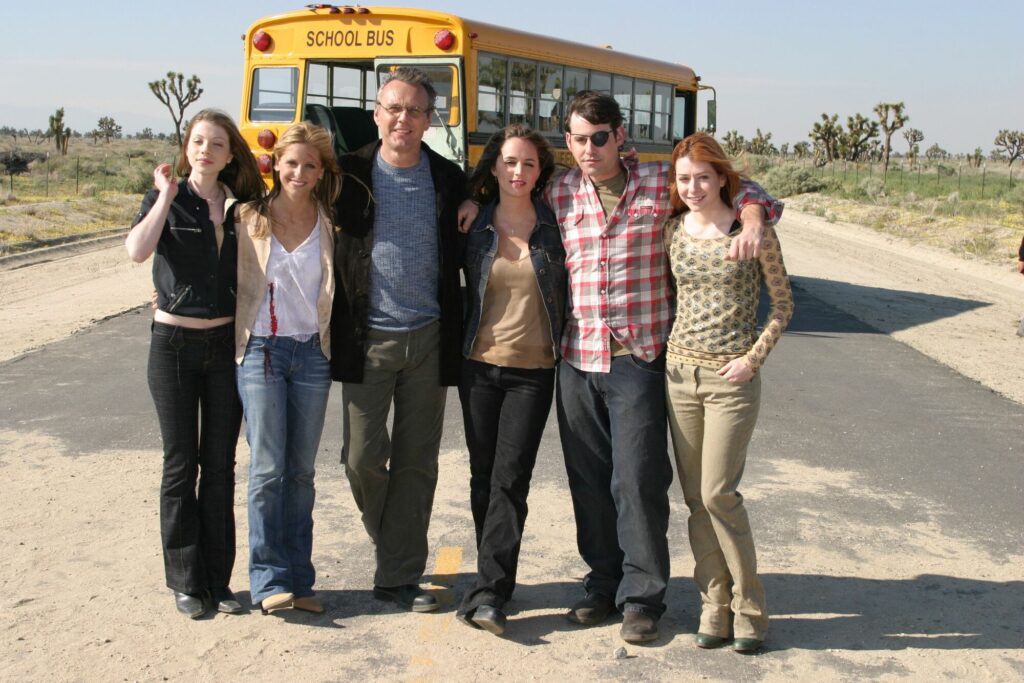In Cadwell Turnbull’s sci-fi novel The Lesson, powerful aliens occupy the U.S. Virgin Islands.
Turnbull, who grew up on St. Thomas, says he meets many people who have no idea that the territory even exists.
“When I first went to Pittsburgh for my undergrad, I would talk to people about the Virgin Islands, and a lot of people just had no idea that we were territories of the U.S.,” Turnbull says in Episode 387 of the Geek’s Guide to the Galaxy podcast. “Because it’s so small—the population is a couple hundred thousand people—it’s easily overlooked.”
Turnbull first got interested in fantasy and science fiction from watching shows like Buffy the Vampire Slayer. He says he related to the way that Buffy’s struggles against the forces of darkness never seem to attract much concern from the outside world.
“If there were demons in the Virgin Islands, no one would notice,” he says. “It would be kind of the same deal as Sunnydale, where there’s a Hellmouth and it just doesn’t seem to pick up national attention.”
But as Turnbull grew older, and became more politically aware, it struck him as increasingly unlikely that the issues plaguing a prosperous suburb like Sunnydale would receive so little media coverage. “It seemed more likely that it would be someplace like the Virgin Islands,” he says, “some isolated black community somewhere.”
In his new novel No Gods, No Monsters, Turnbull takes a scenario similar to Buffy and puts his own political spin on it.
“There are a lot of monsters, and they’re advocating for their rights—and coexistence among humans—but there are a lot of reasons why that’s messy,” he says. “I’m hoping that it will be a series. We’ll see.”
Listen to the complete interview with Cadwell Turnbull in Episode 387 of Geek’s Guide to the Galaxy (above). And check out some highlights from the discussion below.
Cadwell Turnbull on politics in art:
“I think that in literature generally—I think it’s also true in genre, but it’s especially true in literary fiction—there’s this impulse to write about individuals, and the struggles of individuals. Psychology, maybe, or internal conflicts, or relational conflicts, but not necessarily how people engage with the larger world—what are the conflicts that are brought on by society? It’s one of the things I felt attracted to in science fiction and fantasy. That was more of a conversation, and it was something I constantly wanted to write about in my fiction. … I think generally the understanding is that politics isn’t very artistic. You write about people, you don’t write about the politics of the world. But it seems to me that it’s impossible to write about people without the political.”
Cadwell Turnbull on panarchy:
“I was thinking a lot about the idea that governance could be chosen. So like being a part of a government that is not restricted by place, but is part of a group dynamic, a form of community. I was reading something online about this kind of laissez-faire governance where you take the idea of capitalism, the ability to choose your own—I don’t know—cell phone provider, and [applying] that to governance. Wouldn’t it be cool if you could pay dues to a government of your choosing, and you could form a contract with that government, and other people could do that, and that was something that could be a form of governing your life? You could have someone come up with the rules for that particular group, and based on your satisfaction you would continue to be part of that group.”
Cadwell Turnbull on climate change:
“There’s a general sense of fear among people back home in the Caribbean about what the future is going to look like with global warming and the strengthening of hurricanes. … There’s also this [concept] of ‘disaster capitalism,’ the idea of people buying up damaged property that people have abandoned because of hurricanes. That’s always been true, but it’s happening more and more, because the hurricanes have been increasingly devastating. So people come and they buy up things on the cheap, and they rebuild them, and it’s one of the conversations that people are having in terms of local control vs. outside control. Some people have also called it ‘climate gentrification.’ So the idea that wealthy people will have an advantage in places like this, that are experiencing the most damage from climate change.”
Cadwell Turnbull on being a writer:
“I can see how it’s attractive to read about [problems] and talk about them, but not actually do [anything]. And I think that’s why I’ve been attracted to writing fiction that’s kind of problem-solving, and looking at things in the immediate future—trying to extrapolate a world where there’s a bit more economic democracy—which is basically just workers that own their work, and that govern their businesses together, collectively, that kind of thing. So imagining that, I feel, is plausible, and you can do that. Figuring out how to fix global warming is a larger problem, but I think you can get there by writing the kind of fiction that’s a little bit closer to the present, that shows the steps. And I feel like I’ve been excited lately about that kind of fiction.”
SOURCE: Wired



